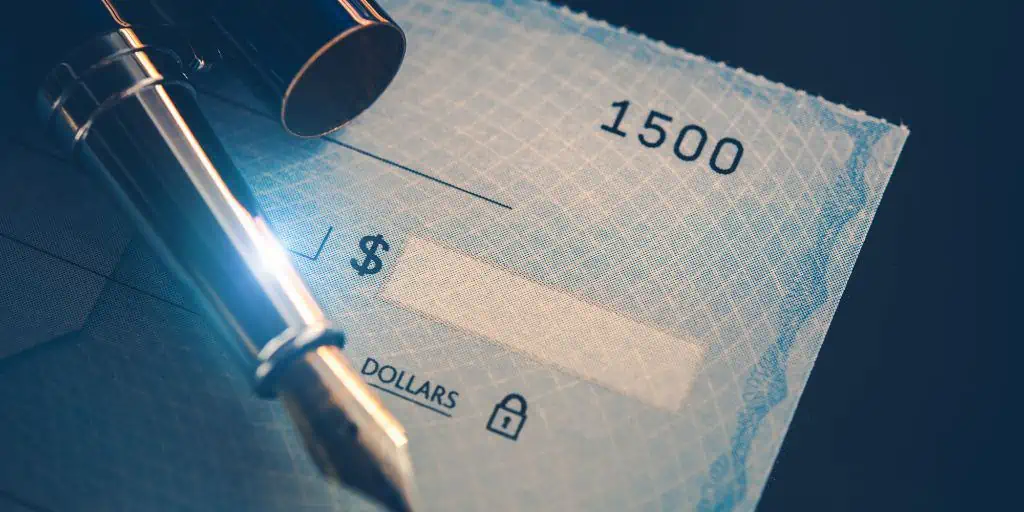What Is a County Treasurer?
REtipster does not provide tax, investment, or financial advice. Always seek the help of a licensed financial professional before taking action.
The Role of a County Treasurer
The role of a county treasurer can vary across different jurisdictions, but they typically collect, manage, and safeguard county funds[1]. Most of these funds come from taxes (which is why some jurisdictions call them “tax collectors”), but some also come from other payments due from county residents. In some counties, revenues may also come from investments[2].

The treasure’s job description generally includes keeping accurate financial records, managing cash flow and investments, and issuing bonds or notes as needed to finance local government operations[3].
More specifically, the treasurer’s office ensures the accuracy and integrity of the county’s financial data and records by providing annual account closings, preparing receipts or payments for government services, and producing financial reports for public review.
In some counties, the treasurer may also oversee banking operations, such as opening accounts with local banks on behalf of the county and setting up new accounts for departments or other entities. Some even manage the payroll of county employees[4].
Duties and Responsibilities of a County Treasurer
The duties and responsibilities of a county treasurer can vary from place to place.
The following is a description of their typical responsibilities.
Collecting, Recording, and Depositing County Revenues
These revenue streams, primarily tax dollars, fund community services. Part of the treasurer’s job is to record the incoming funds and identify credible sources for those payments, such as property taxes (standard property tax and real property taxes), grants, state reimbursements, fees, fines, and bonds from government entities and other stakeholders.
Once collected and recorded, the county treasurer’s office oversees the deposit of these funds into a municipal checking account, then manages the disbursement of taxpayer dollars into the appropriate accounts for public use[5].
Financial Planning and Budgeting
The county treasurer allocates county funds to public programs and services. Among other things, the treasurer analyzes expenses, develops and proposes new initiatives, seeks outside funding opportunities, evaluates investments and tax rates, and more. They evaluate their current and projected income sources to develop an effective financial plan for a streamlined allocation of funds.
The treasurer also plans how the money will be spent, making sure it meets everyone’s needs. They keep an eye out for changes that could happen and make necessary adjustments to keep the county’s finances in good shape and prevent overspending.
Additionally, their understanding of county revenues and expenses gives them important insight into potential economic challenges or opportunities[6]. Treasurers need to keep a ledger for programs such as school districts and fire districts, as well as numerous tax situations, from delinquent taxes to the county’s own tax bill.
Preparing and Issuing Receipts for Payments
A county treasurer provides accurate and timely receipts for any payments received from citizens. This way, taxpayers can track public spending if needed.
This responsibility creates a fair amount of busy work for the office, as they have to maintain systems for debit and credit payments, partial payments, and electronic check payments, all while providing and adjusting the due date for each outstanding bill. An efficient collections process is essential because the office may enforce penalties or a service fee on a delinquent payment.
This vital duty also allows accountability and transparency. Keeping accurate financial records not only helps the county treasurer make informed decisions but also builds public trust. For what is typically an elected official position, the treasurer’s office demands this level of public visibility.
Maintaining a Central Financial Accounting System
The broadest responsibility of the treasurer is keeping track of all financial transactions within the county, including the whole of the tax amount owed to and by the local government. They maintain accurate and current records, analyze the financial reports to see if the county’s money is being used correctly, and make sure that all financial decisions abide by laws and ethical standards.
Keeping these systems sound allows county treasurers to identify irregularities in district resources. As such, their duty is to manage these records so appropriate governing bodies can make better financial decisions for the county government.
Advice on Financial Matters
County treasurers provide advice and input on the county’s financial status. This may include topics such as bond issues, budgeting tips and techniques, investment opportunities (e.g., stocks and bonds), monitoring debt levels, and potential areas for cost-savings or operational improvements.
County treasurers are also responsible for providing guidance on the tax system and potential changes that may affect the budget. They are well-versed in the trends of capital markets, which enables them to guide long-term investment strategies, ensure compliance with local laws and regulations, and advise on maximizing returns for the county.
What Requirements Should a County Treasurer Comply With?
County treasurers are held to the highest financial management standards. These standards include following proper filing procedures for specific documents, ensuring regulatory compliance for any investments made by the county government, and securing a regular and independent audit.
Here is a brief breakdown of a county treasurer’s qualifications.
Education
County treasurers must be knowledgeable in financial management and possess at least a degree in a relevant field, such as finance, accounting, or economics. They must also be familiar with county laws and regulations.
Experience
Experience in handling government budgets and investments is a requirement for county treasurers. A candidate with at least four years of relevant experience in the public sector, private enterprise, or both is desirable.
Certifications
Nationally recognized certifications related to financial management[7] can make candidates stand out when applying for the county treasurer role. A candidate can acquire a certificate after completing a program, passing an examination, and fulfilling continuing education requirements.
Takeaways
- A county treasurer is a public official that collects county revenues, manages its finances, and disburses funds to finance public projects and investments.
- Some jurisdictions call them tax collectors.
- A county treasurer’s duties and responsibilities include: receiving, recording, and depositing county revenues; preparing and issuing receipts for any payments; performing financial planning and budgeting; maintaining a central financial accounting system; and advising on financial matters such as bond issues, budgeting, and investments.
Sources
- Treasurer’s Duties & Responsibilities. (n.d.) Website of the Treasurer of Washtenaw County, Michigan. Retrieved from https://www.washtenaw.org/1143/Treasurers-Duties-Responsibilities
- Milano, S. (2022, April 19.) What Are the Duties of a County Treasurer? CHRON. Retrieved from https://work.chron.com/duties-county-treasurer-31170.html
- Texas County Treasurer. (n.d.) Texas Association of Counties. Retrieved from https://www.county.org/About-Texas-Counties/About-Texas-County-Officials/Texas-County-Treasurer
- Functions of the County Treasurer. (n.d.) Official Website of McLennan County, Texas. Retrieved from https://www.co.mclennan.tx.us/1122/Functions-of-the-County-Treasurer
- Byers, J. (2008, November.) The County Treasurer: Keeper of the Dollar$. National Association of Counties. Retrieved from https://www.naco.org/sites/default/files/documents/Role%20of%20the%20County%20Treasurer.pdf?fbclid=IwAR3KiTv7dDydZ4eMzf9DZBnCgSdHK1oR2S-akR3wPgchbjdqOHK7p6qdmL0
- The County Treasurer. (n.d.) Washington Association of County Officials. Retrieved from http://countyofficials.org/252/About-the-County-Treasurer?fbclid=IwAR3NqFytcDlg0AtOfKua3xfa8wfT81KBXN5yeE7oRVe4Rxl5DGjHCEgF3W0
- Top Professional Finance Certifications. (2022, November 26.) Corporate Finance Institute. Retrieved from https://corporatefinanceinstitute.com/resources/career/top-finance-certifications-list/











